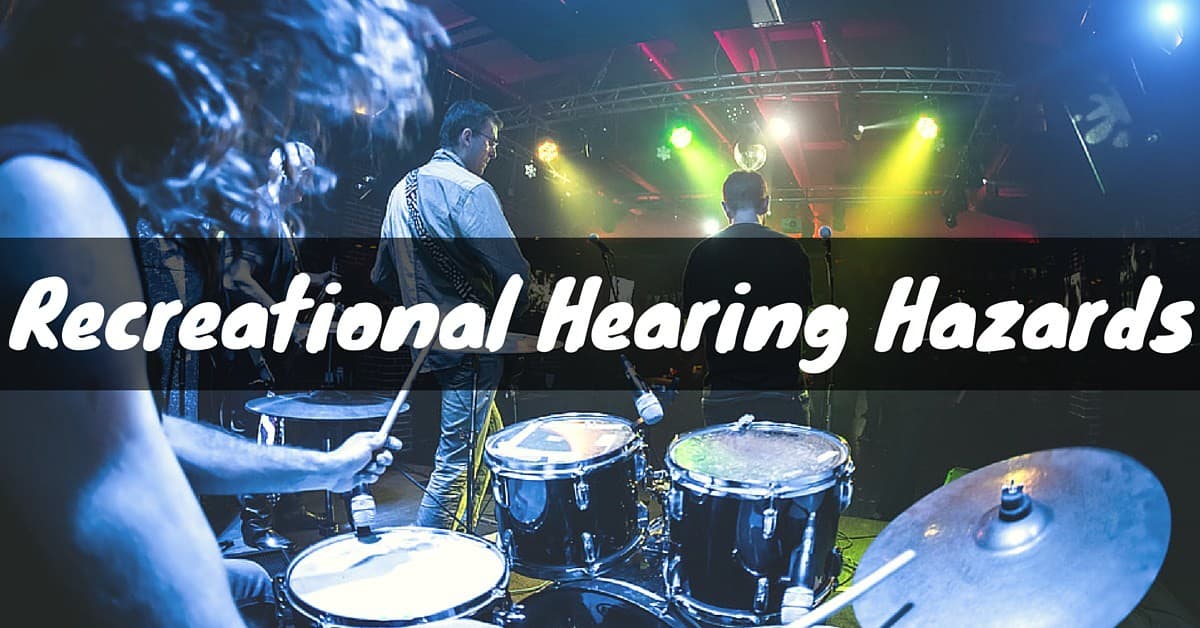Noise-Induced Hearing Loss
Exposure to loud noise is a common cause of hearing loss in the United States. Our ears never shut off – even when we’re asleep, we are awoken by our alarm clocks. Throughout the day, we are exposed to many different noises, from our hair dryer to the lawn mower to babies crying in the movie theatre. Certain sounds are more detrimental to our hearing than others.
Hearing specialists believe that exposure to sounds at 85 decibels for a period of eight hours has the potential to cause permanent hearing damage. The higher the decibels rise, the shorter the exposure time poses a risk.
Unlike age-related hearing loss, noise-induced hearing loss may occur to anyone at any age. According to the National Institute on Deafness and Other Communications Disorders, “Approximately 15% of Americans between the ages of 20 and 69 – or 26 million Americans – have hearing loss that may have been caused by exposure to noise at work or in leisure activities. As many as 16% of teens (ages 12 to 19) have reported some hearing loss that could have been caused by loud noise.”
We’ve previously explored occupational hearing hazards. Today, we’ll take a look at exposure to noise in recreational activities.
Sports Fans
Sports venues have been notorious for their decibel level. Hearing specialists have estimated sports venues to be on average 90 decibels, with 130 decibels on the high end. Between the announcers on the loud speakers and the cheering fans, one can see how the volumes rise. For NFL games, which last around three hours, this has serious potential to damage fans’ hearing. These games are louder than noises produced by sirens and jackhammers.
Do-It-Yourself Projects
If you’re particularly crafty and enjoy your own construction projects, consider custom hearing protection. Power tools used in these projects, combined with the cave-like conditions of a basement woodshop or garage, may produce volumes that are damaging to your hearing. Chainsaws, for example, block in at 110 decibels, but depending on the acoustics of the space, the decibel level may rise.
Hunting/Shooting
For folks who hunt or go to shooting ranges, hearing protection is a necessity. The American Speech Language Hearing Association says, “Exposure to noise greater than 140 dB can permanently damage hearing. Almost all firearms create noise that is over the 140-dB level. A small .22-caliber rifle can produce noise around 140 dB, while big-bore rifles and pistols can produce sound over 175 dB. Firing guns in a place where sounds can reverberate, or bounce off walls and other structures, can make noises louder and increase the risk of hearing loss.” To learn more, visit ASHA’s page on recreational firearm noise exposure. (http://www.asha.org/public/hearing/Recreational-Firearm-Noise-Exposure/)
Music Lovers
The experience of live music is a great joy – but without proper hearing protection, it may lead to permanent hearing loss. A live concert clocks in at around 100 decibels, but may rise depending on the acoustics of the space and your proximity to the noise-source. Additionally, due to the ubiquity of portable electronic devices and earbuds, the rate of hearing loss has risen in young people between ages 13 and 17. Protect your hearing with earplugs, and control the volume when you are listening to music on your headphones and devices.
Custom Hearing Protection
Our leisure activities make us happy – and there’s no reason to stop doing them. Using custom hearing protection, made from molds of your ears, will help to protect your hearing from the dangerous decibels in your favorite activities.
Live your life to the fullest! Call (877) 330-2920 to schedule an appointment at one of our locations today!


